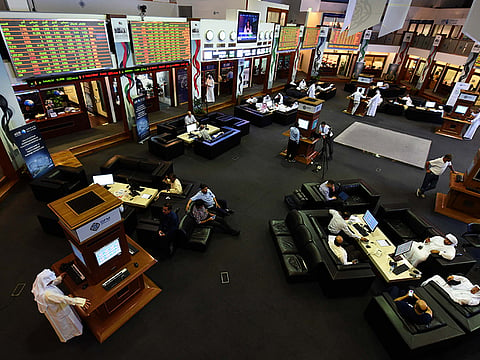Financial literacy still needs more homework in the UAE
Lack of financial education cited as exacerbating economic inequality

Abu Dhabi: There’s a running joke on the internet about how the school system teaches you how to calculate the sine, cosine, and tangent of an angle (SOHCAHTOA), but fails to teach anything about practical life skills that you actually need. Like how to budget, invest, and avoid debt.
But it really isn’t all that funny, especially when average consumer debt in the UAE stands at $95,000 (Dh348,650) per household (or $114 billion in total), according to a figures by research firm, Strategic Analysis. To put that number into some perspective, $114 billion can eradicate world hunger nearly four times over.
And with so many UAE residents caught in debt cycles, we’re either all making the same mistakes, or we all lack the financial education needed to budget efficiently.
“We believe that financial literacy is still a big issue in Abu Dhabi and many young people don’t understand the implications of taking on debt and borrowing. This, combined with complex or opaque financial products and irresponsible lending practices can lead to young people taking on more debt than they can manage, severely affecting their futures,” said Chris Taylor, chief executive officer of Abu Dhabi Finance, a mortgage provider.
He added that teaching young people about responsible money management “is central to building financial security for themselves, their families, and for the UAE.”
It’s not just financial security, though.
Economic inequality
According to Annamarie Lusardi, economics professor at George Washington University, a lack of financial education exacerbates economic inequality. More than a third of wealth inequality can be attributed to people’s financial education, or lack thereof, she said.
The significance of financial education is perhaps even bigger this year as oil prices and the resulting slowdown in economic growth force companies to axe jobs. Non-performing loans in the UAE have been on the rise as many small and medium enterprises as well as individuals find themselves out of business.
Sulaf Al Zu’bi, chief executive officer of Injaz UAE, a non-profit organisation focusing on business education, said there is a need for financial literacy programmes in the country starting with youth.
“There’s a direct link between education — financial literacy — and the way young people manage their money. Education is required on how to manage debt and so forth, so there are a lot of opportunities in the market to promote financial literacy. This is scientific and there is research that proves that the more financially literate people are, the better decisions they make as adults,” she said.
Financial programmes in Abu Dhabi
For that very reason, Injaz has partnered with Abu Dhabi Finance to boost financial literacy among secondary school and university students in Abu Dhabi.
The partnership brings a pilot programme that aims to train over 1,500 students over three years. It covers financial planning, budgeting, saving, how to identify investment opportunities, how to multiply your savings, and how to assess credit cards and avoid their traps.
The programme measures students’ basic financial knowledge before and after they take the courses, and results showed a short-term impact in how they view finances.
“Because this is a pilot, in about a year’s time, we’re going to see if it has a long-term impact and if it truly changed their behaviour to managing finances. What we know from other countries that piloted the same programme for the same age group is that there is a short- and long-term impact,” Al Zu’bi told Gulf News.
The programme uses real-life examples and simulations to teach financial literacy, such as how to buy a car, a house, or save up for higher education. It is already being used by institutions in Europe, the US, and parts of Asia.
“The statistics are very clear on the importance of financial education and we want young people to be aware. In the GCC, whether it’s an expat family or nationals, the average cash that a young person has is above the norm, so it’s important to help them learn how to make use of that income and how to save it,” the CEO said.
Injaz and Abu Dhabi Finance plan to test the programme among students in the capital, tweak every phase of the programme accordingly, and eventually present it to the Ministry of Education with a pitch of implementing it into school systems.
Sign up for the Daily Briefing
Get the latest news and updates straight to your inbox



